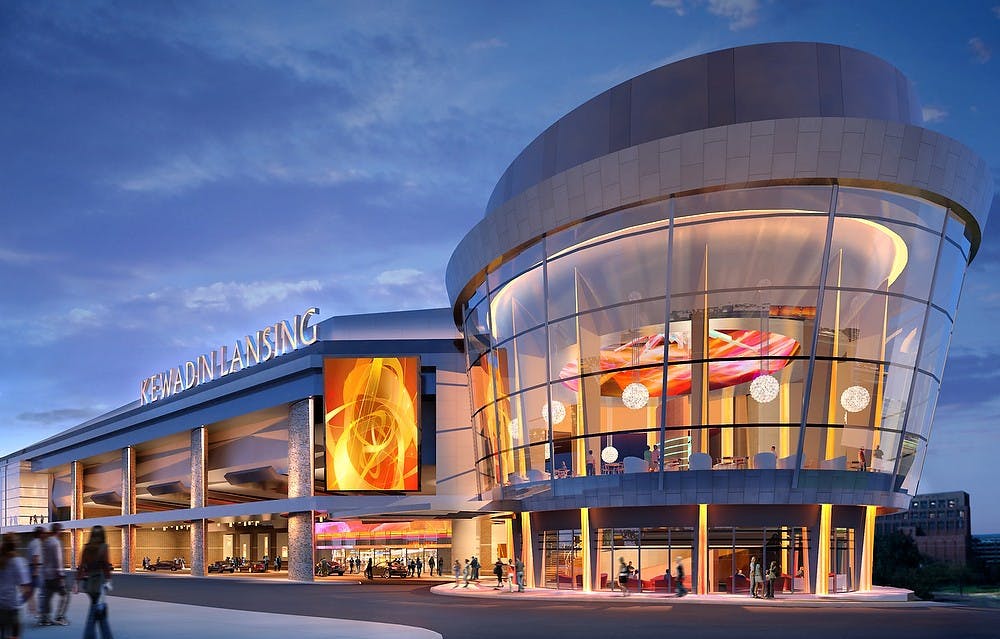The U.S. Supreme Court has agreed to hear the case between Michigan Attorney General Bill Schuette and the Bay Mills Indian Community regarding the tribe’s casino in Vanderbilt, Mich., in a case with reaching implications for prospective casinos across the state.
The most recent development in the ongoing struggle came on June 24 when the Supreme Court agreed to hear the case, which has gone back and forth in recent years. If the Supreme Court upholds the appellate decision, it could open up the opportunity for tribes to open casinos on purchased lands, such as the case in the state capital with the Lansing Kewadin Casino, according to Tom Shields of Marketing Resource Group.
The case revolves around the tribe’s decision to purchase land in Vanderbilt using funds repaid by the federal government and constructing the casino on the lands, which the state contends is illegal. However, Bay Mills have argued that the 1997 Michigan Indian Land Claims Settlement Act makes any purchased lands tribal reserves, and thus the site is considered a tribal casino.
The court’s decision has the potential to respark the hotly debated Lansing Kewadin Casino, a $245 million joint venture between the city of Lansing and the Sault Ste. Marie Tribe of Chippewa Indians. After Lansing Mayor Virg Bernero and the tribe came to an agreement, a U.S. District judge halted the project, putting a potential economic game changer on hold, according to Lansing Deputy Chief of Staff Randy Hannan.
“The potential benefits (of the casino) are stunning,” Hannan said, elaborating that the 1,500 permanent jobs with additional jobs during the casino’s construction, as well as an estimated $450 million dollars in economic impact, could have a positive economic ripple through Greater Lansing.
Hannan added an agreement between the Sault Ste. Marie tribe and the city of Lansing would set aside an estimated $5 million a year for a scholarship program for Lansing students. The scholarship would be similar to the Kalamazoo Promise, which provides varying scholarships for students who attend state colleges within Michigan, with up to 100 percent coverage for students who attend K-12 in the Kalamazoo district.
Krista Hubbard, an environmental studies and agriscience senior, said she was excited for the possibility of a scholarship program, as many students struggle to pay for their education. While Hubbard only has been to two casinos in California with her family, she believes the benefits of a casino in Lansing outweigh the potential negatives.
“I think it’s a good idea because it’ll provide a whole bunch of jobs and be good for tourism,” she said, adding that she didn’t believe the casino would cause an increase in crime.
The case currently is entangled in the appeals process as the Sault Ste. Marie community fights in appellate court, according to Hannan. However, both parties will be anxiously observing the Bay Mills case during the coming months.
In December 2010 then-Attorney General Mike Cox filed a lawsuit against the Bay Mills Casino in Vanderbilt, which opened just one month prior. In March of the following year, a U.S. District judge ordered an injunction, closing the casino’s doors. However Bay Mills struck back, winning in appellate court, though the tribe has elected to keep the slots unplugged until the case is decided, according to Shields.
“We have a strong case and are hoping for a favorable decision from the court,” said Shields, the spokesperson for the Bay Mills Indian Community.
“We believe we are within our rights to open a casino on tribal lands.”
Shields said the purchased lands are considered tribal land, ensuring Bay Mills retains the right to open up casinos on the property.
Attorney General Schuette disagreed.
“Today’s ruling sets the stage for an important discussion about the states’ ability to halt the unrestrained expansion of off-reservation tribal casino gambling,” Schuette said following the court’s announcement to hear the case.
Support student media!
Please consider donating to The State News and help fund the future of journalism.
Discussion
Share and discuss “US Supreme Court will hear Bill Schuette’s casino dispute” on social media.







